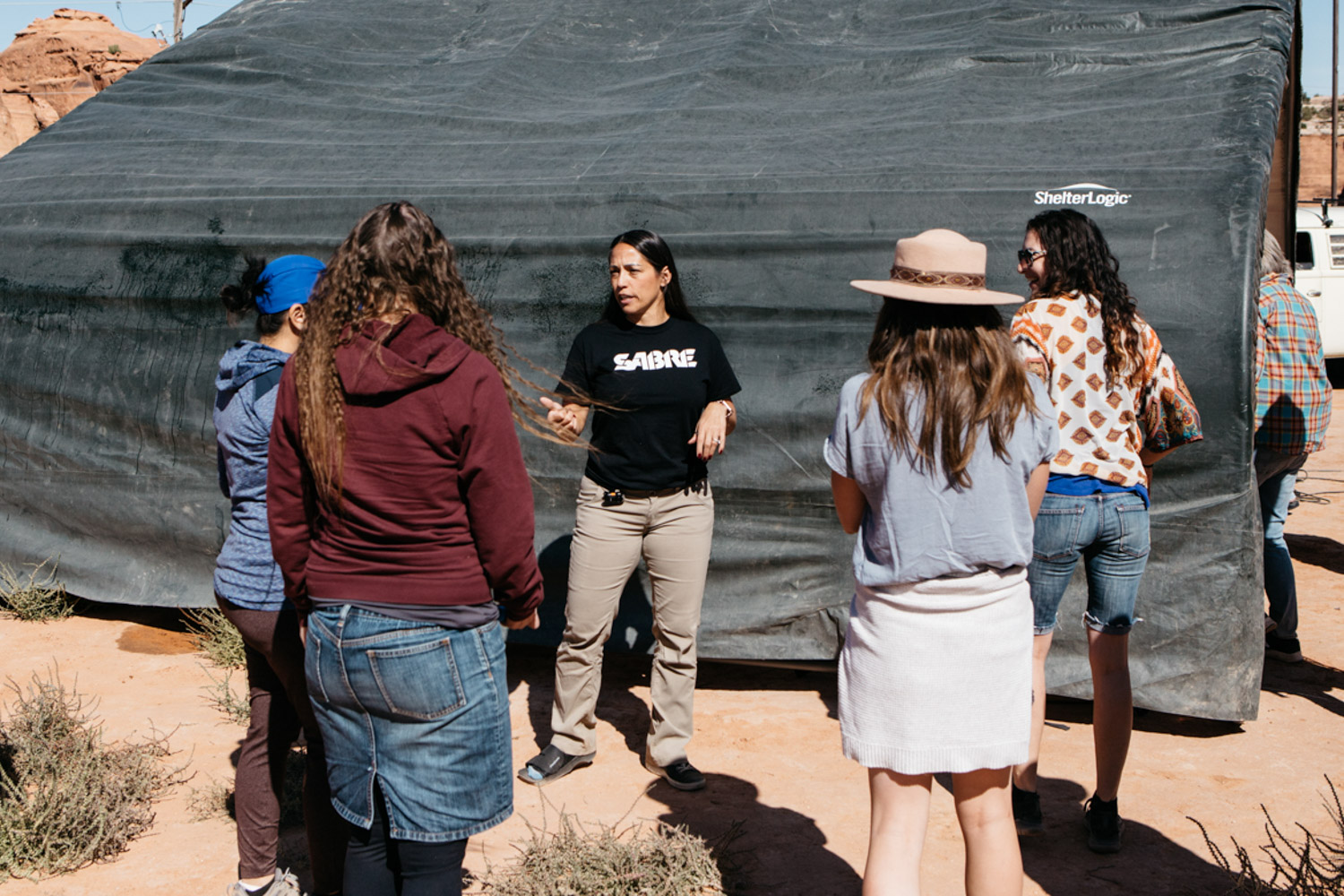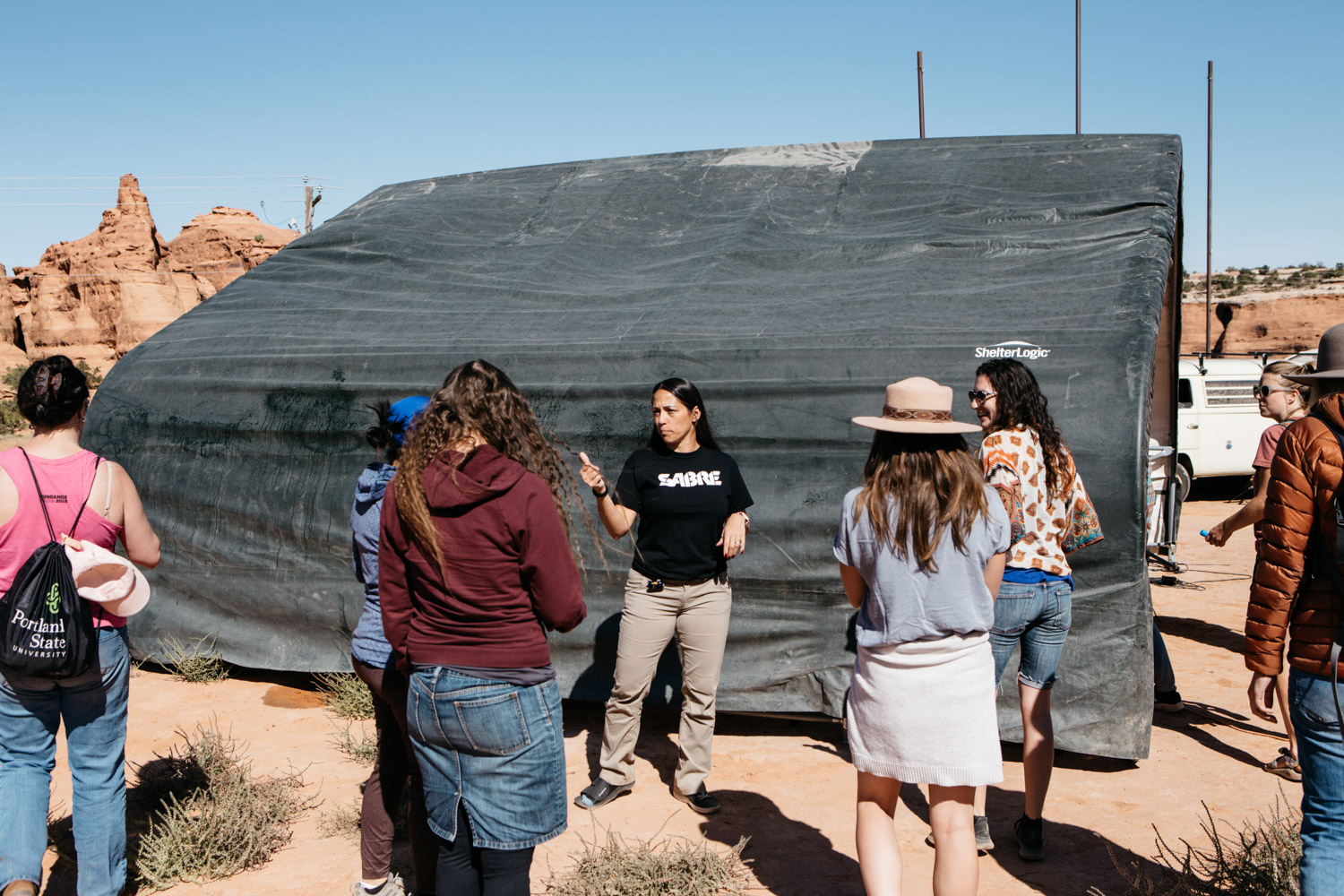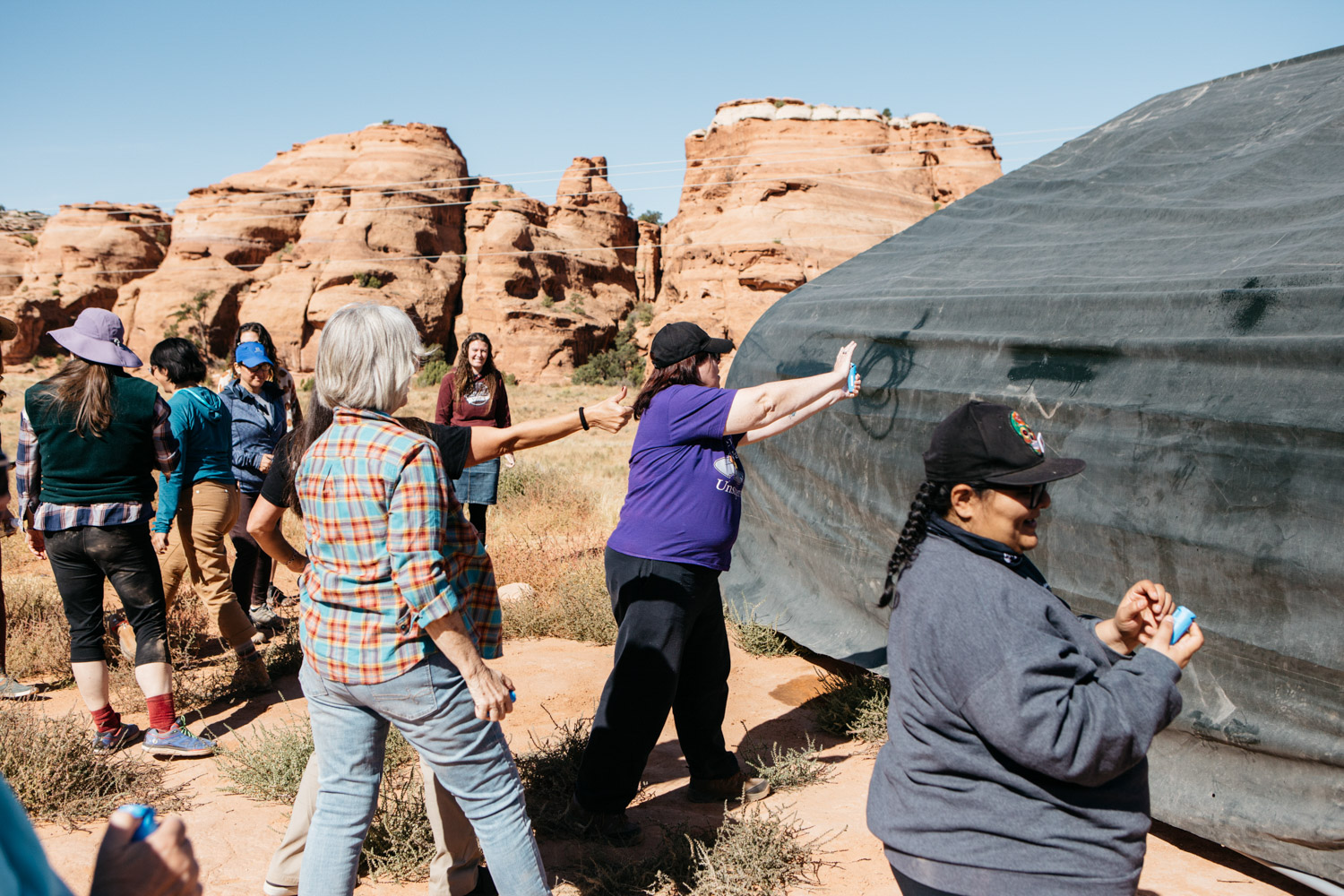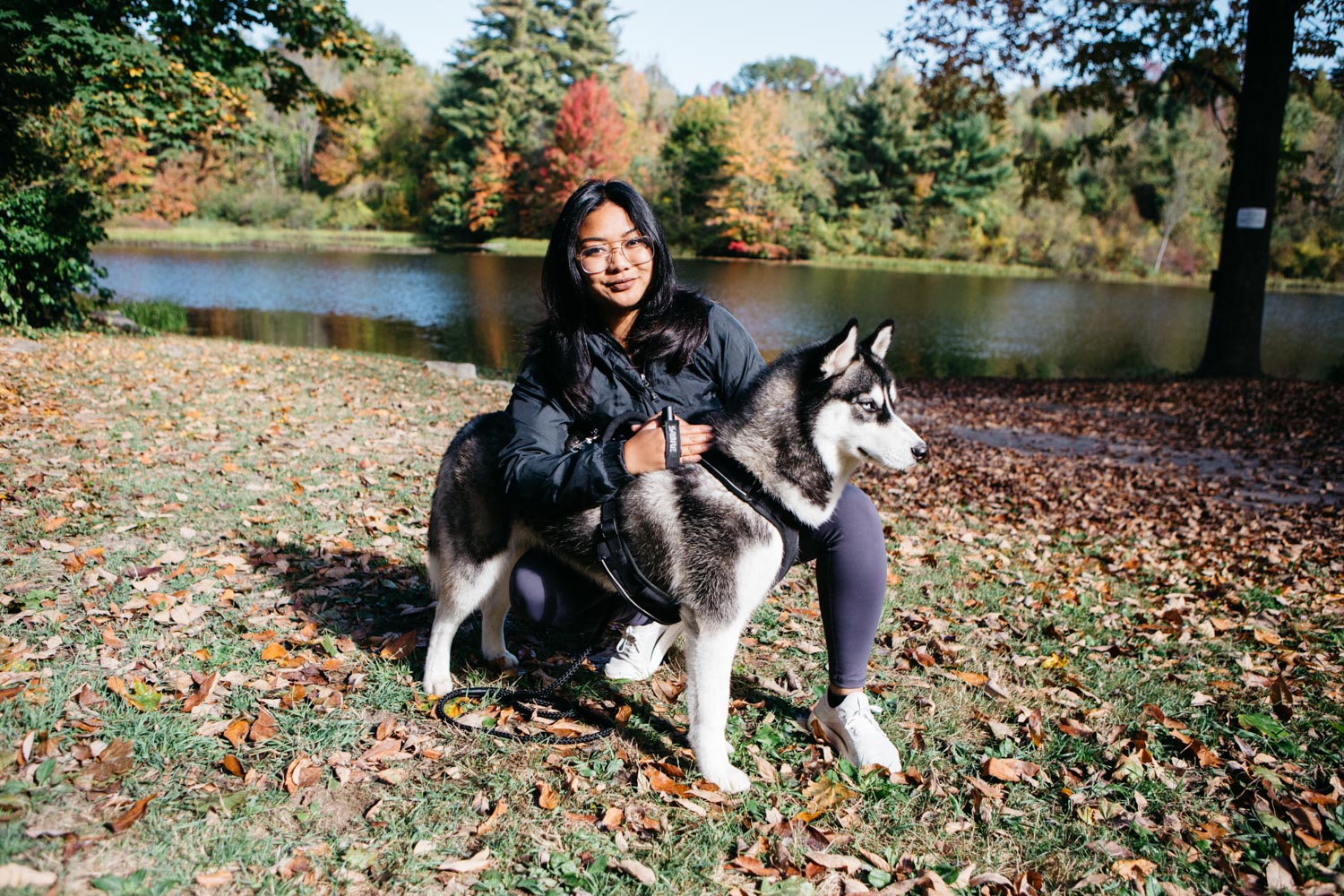6 Tips from a Self-Defense Expert for Personal Safety in the Outdoors

Six Tips from a Self-Defense Expert for Staying Safe on the Trail
Tina Valdez Offers Advice on Personal Safety
Sponsored by SABRE
We’d rather lead with confidence than fear, but we do think it’s important to be and feel safe when we’re doing what we love outside. So how do you stay safe when you’re hiking or exploring the city where you’re local? There are many different approaches to self-defense, and we are each the experts on ourselves and what makes us feel safe. To get a better understanding of the personal safety basics and what our options are, we decided to talk to a self-defense expert.
Tina Valdez has been teaching personal defense and working with women and kids for over a decade, including volunteering as an instructor with SABRE. She says her heart lies “in helping people to avoid any bad situations and then defend themselves if they do end up in one,” and she believes that there is no reason at all to ever be a victim.
Our conversation with Tina reminded us that our minds and bodies are our best tools for staying safe, but the right items can be an “equalizer” if we know how to use them. She’s also given us a leg up on resources and things to know when we start thinking about how to prepare ourselves mentally and physically with personal safety in mind.
Tina’s best tips for personal safety anywhere you adventure:
Note: These tips have been condensed from a phone conversation with Tina, edited for brevity and clarity, but left true to her voice.
Mental preparedness is key
Your brain is your best weapon. As my granny used to say: “An ounce of prevention is worth a pound of cure.”
Preparation is huge. The more you can think about “When this happens, then this is what I’ll do”—or a “when/then” scenario—as opposed to not being prepared when you step into a potentially dangerous situation, the better off you will be.
Let’s say you’re into urban exploring, or going into vacant buildings in urban environments. You know you’re stepping into a situation that’s potentially dangerous, so how do you prepare? What do you think about? Do you think about spots where there might be limited visibility? Do you think about listening to different noises? Are you prepared mentally and physically in case something should happen?
Remember that safety begins in your head and that being prepared as you go into a situation, by knowing as much as you can about it, by planning out your “when/then” scenarios, is very important.

Tina chats about safety with workshop attendees.
Physical preparation is a combination of what you carry and how you train yourself
I’m all of 5’5 so a general acknowledgment is that women are [biologically, and on average] the smaller sex, and because of that there are different things that we need to think about when we take care of ourselves.
My first tip is to get out and get your workout on. Make sure you’re as strong as your time and body type allows. Make sure you’re taking care of yourself as best as you can. The better physical condition you are in, the better you’ll be able to respond in any situation.
Then since we tend to be smaller, we need an equalizer—something that makes us as big as the person potentially attacking us. My personal favorite choice is pepper spray. It is versatile, it is effective, it is easy to use, easy to get a hold of, and it’s not lethal. So you don’t ever have to worry about doing something that can’t be undone to another person, which is something that weighs on our souls. So I love to carry pepper spray. It’s simple and it’s also discreet and you can carry it everywhere.
If you happen to not have your pepper spray with you or your whistle or anything else with you, look around you to see what could be used. Is there a stick on the ground you can pick up? Is there a pen on the ground you can pick up? Then at least you’ve got something for your when/then scenario if you feel like you need it.
- Pepper spray is small and easy to carry.
- Something else to bring along might be a discreet personal alarm.
Practice builds skills and confidence
While pepper spray is simple to use, practicing anything is important. I highly recommend finding a local instructor and taking a course. You can find courses at SABRERED.com. They’re usually very inexpensive and they typically also come with a canister of pepper spray. SABRE also posts videos and training tips on their website. Getting that training and always having that with you is an easy thing to stay safe.
Most martial arts schools also have a practical portion of their teaching. I was a member of American TaeKwonDo Association (ATA) and I’d recommend them highly. They’ve got schools all around the country that you can drop into. A lot of them have gone online now, given public health mitigation plans in light of COVID, so that’s another way to do it.
For additional resources, you can keep on top of RAINN [the nation’s largest anti-sexual violence organization, Rape, Abuse & Incest Nationoal Network] and organizations like that as well.

Tina shows workshop attendees proper technique with inert practice spray.
Remember that most people are good, but know who’s close to you
The truth is, while there’s a ton of fear that you see on the news, what’s not said is that the majority of people out there are good people. They’re there to help you or be friends with you. They’re not out there to hurt you.
As you’re seeing people on the trail or at the mall or in a parking lot, say hi, make eye contact, give a smile, and say hello—there’s no need to be fearful when most of the world just wants to get along like you do.
Some knowledge to keep in mind is that more than two-thirds of assaults happen by a non-stranger and about one-third of those are done by someone you know, not a stranger you run into in that parking lot or on a trail like we imagine.
So as you’re picking your friends and with whom you’re traveling or getting to know a new person on your block or in your camping or traveling group, get to know them really well.
In terms of other resources, make sure you check the sex offender registry so you know who’s around you. That’s something you can do at home, or if you’re traveling or camping you can pull it up on your phone to check where any potential dangers might lie.
Always trust your instincts
Instincts are also real. As you’re out on the trail or traveling alone, remember that your instincts are there for a reason. Way back in caveman days, our instincts kept us from getting eaten by a lion because we could feel when eyes were on us. It’s the same thing today. Trust that sixth sense.
If you get that creepy feeling in your stomach, pick your head up, look around, and make sure you’re paying attention. Go back into the store for safety, go to somebody else so you’ve got power in numbers, or get to your car very quickly, always looking around and making sure no one is following you.
Don’t try to badass your way through it. Your instinct is there to protect you. You don’t need to be overly courageous to a point of detriment.

Whether you’re alone, on a trail, at a park—trust your instincts. Humans have them too, and they’re there for a reason.
Keep alert if you’re alone or somewhere more isolated, like a trail
If you can be with someone else, absolutely, there is safety in numbers. But oftentimes we want to have a little alone time in nature.
If you’re going alone, take your pepper spray with you. Also pay attention to other people on the trail. We want to make eye contact and say hi to people. But there’s another reason we want to make eye contact with people, and that is to make sure we’re coming from a place of strength. Eye contact tells people, “Hey, I’m strong, I see you. I recognize who you are. I am a hard target.” So keep in mind how you’re greeting people.
Pay attention to blind spots, or places that might be dangerous for you. Keep your head up, keep your eyes open and ears open for anything that might be a hint that you’re in danger. And don’t be afraid at any time to turn around and get out of there. Again, there’s no reason to be overly courageous. It’s your life you’re dealing with.
If you feel that sixth sense, you hear a crackling in the woods, it might even be a bear. (So on top of being wary of assault, for hikes, make sure you’ve got your bear precautions). Never be afraid to get out of there if you need to. There’s no shame in that at all.
Photos by Gale Straub
Learn more about the different safety products SABRE offers at SABREred.com. You can also search their Personal Safety Training to find an instructor like Tina near you.
Note: We created this post in partnership with SABRE, but the topic and tips suggested are something we stand behind.


Be the first to comment